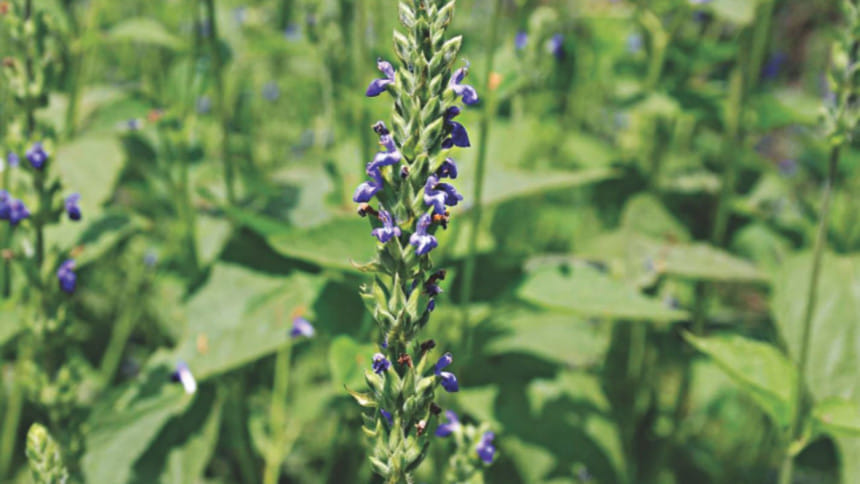Aztec wonder herb

The Aztecs knew a thing or two about chia. The herb from the mint family, native to southern Mexico and Guatemala, was given as tribute by the people to their rulers in many provincial Aztec states. In more recent years, chia seeds have become a common food ingredient throughout Latin America, as well as in the United States and Europe. Now scientists at the Bangladesh Agricultural University in Mymensingh are confident that chia farming has good prospects here.
“I collected chia seeds from Mexico in 2010,” says Dr Md Alamgir Hossain, the professor from the university's crop botany department who led the research team. “For four years we adapted the plant to suit local conditions. After that we completed field trials. Finally, this year, the BAU Chia-1 variety is ready for farming.”
With 67 percent omega-3 fatty acids, which are essential for good health, chia offers a better alternative to harmful cholesterol in people's diets, according to Dr Hossain.
“Many people in this country cannot afford enough fish and fish oils, which are the main sources of omega-3,” he says. “Chia will be available year-round. It can be eaten directly, blended with water or included in soft drinks, milk and yoghurt products.”
Chia seeds, which are similarly rich in thiamine and niacin, and a good source of dietary mineral requirements including calcium, iron, magnesium, manganese, phosphorus and zinc, are also commonly used in bread products.
“Local climate and soil conditions are favourable for chia,” the scientist says. “Chia seeds are easily stored at normal temperatures for up to a year, and the herb can be grown organically because it is of little interest to insects. Chia will be cheaper to farm than many of our traditional crops.”
In recognition that chia may have potential to reduce the risk of heart disease, the crop that has been enriched with vitamins A, B, D and E, has been introduced to farmers with the slogan 'Maintain a healthy heart, a healthy life with chia.'
“Thus far around fifty farmers from different districts have been trained in chia cultivation,” notes Dr Hossain.
Ideally a late autumn to winter crop in Bangladesh, chia takes around 100 days to reach harvest, and the trials have demonstrated harvest rates of up to two tonnes per hectare, which is higher than the 1.7-tonne-per- hectare harvests regularly achieved in Mexico.
Bangladeshi chia has significant export potential. Currently sold at niche stores in Dhaka for around Tk 3,000 per kilogram, international demand for chia is soaring and international prices are up to five times higher.
“Our scientists have done a tremendous job in introducing a variety of chia,” remarks the head of the university's crop botany department, Prof Dr AKM Zakir Hossain. “The research needs to continue for the crop's further development.”

 For all latest news, follow The Daily Star's Google News channel.
For all latest news, follow The Daily Star's Google News channel. 






Comments